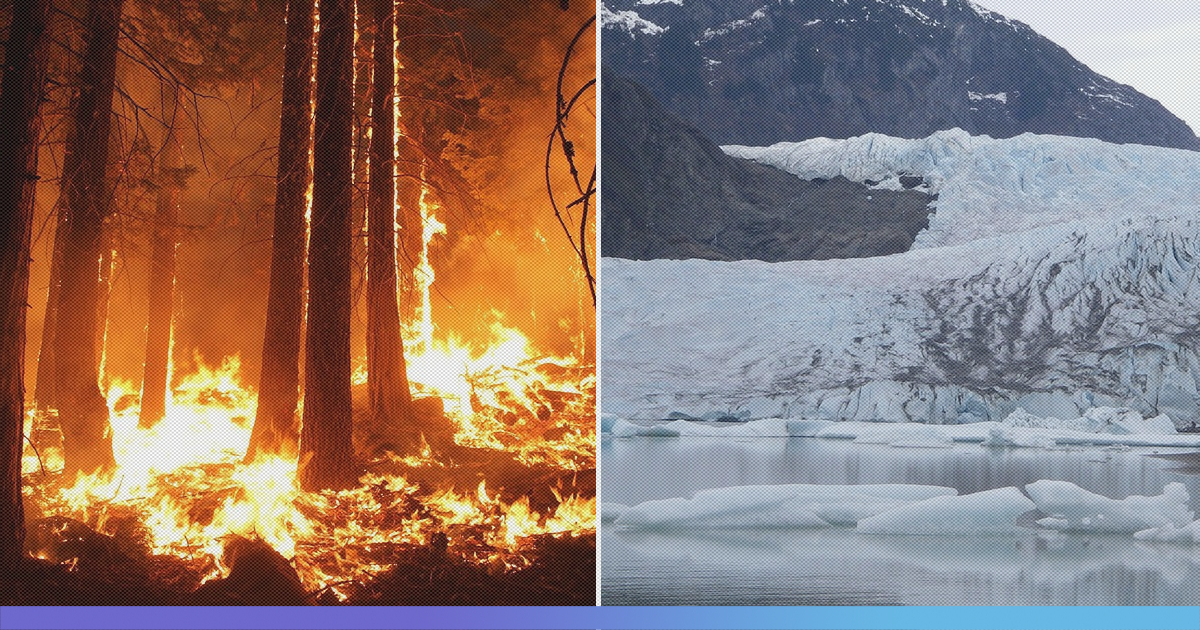Gone are the days when we had to think about the adverse effects of global warming because it is already upon us. The coldest place on the earth is burning! Yes, you heard it right. Discussion and long talks are out off the table as the time has come to roll up the sleeves and work together on this global issue.
The Arctic Circle, which includes countries such as Sweden, Russia, Denmark, Iceland, Finland, and parts of the USA are witnessing the worst wildfires the world has ever seen. The World Meteorological Organisation called the fires burning in the Arctic as “unprecedented”. The United Nations agency a few weeks ago noted that around 100 intense fire burned in the region releasing carbon dioxide in the atmosphere more than that of Sweden.
The reason behind such wildfires is attributed to the significant rise in temperature in the region. The arctic circle is heating at twice the rate than the rest of the world. The profound change can be observed over the Arctic ocean where the ice blocks are melting at a record speed throughout the summer 2019.
Satellite images of these wildfires over the northern region of the arctic circle have gone viral over the internet raising concerns among the netizens.
An area of 5.20 km² is now affected by the Greenland #wildfire🔥 in #Qeqqata Kommunia which is still smoldering/burning #Greenland🇬🇱 31 July 2019 Enh. nat. col. #Copernicus #Sentinel-2🛰️ Full-size: https://t.co/BqtlBeSLVt Album with more: https://t.co/7ZL8wrDiRa #RemoteSensing pic.twitter.com/KzSyW8GrPC
— Pierre Markuse (@Pierre_Markuse) August 1, 2019
#wildfires #Qeqqata #Greenland
06.August 2019 ��������
Film; Orla Joelsen pic.twitter.com/MLziyhaALa— Orla Joelsen (@OJoelsen) August 10, 2019
#wildfires #Qeqqata #Greenland
06.August 2019 ����������
Foto; Orla Joelsen pic.twitter.com/rfz2GezQNK— Orla Joelsen (@OJoelsen) August 10, 2019
Mark Parrington, a senior scientist in the Copernicus Atmosphere Monitoring Service (CAMS) in an interview with CNN said, “ The number and intensity of wildfires in the Arctic Circle is unusual and unprecedented. They are concerning as they are occurring in a very remote part of the world, and in an environment that many would consider to be pristine”
The National Aeronautics and Space Administration (NASA) has already raised concerns regarding the climate change the carbon dioxide released from these wildfires might cause. NASA has warned that these fires can expedite the melting process of ice blocks in Arctic ocean. Apart from substantial emission of carbon dioxide scientists are worried about the particulates released into the atmosphere in smoke, which can trap heat and increase the effects of a warming climate.
Also Read: Breaking Of Sea Ice Drowned Thousands Of Emperor Penguin Chicks In Antarctica













